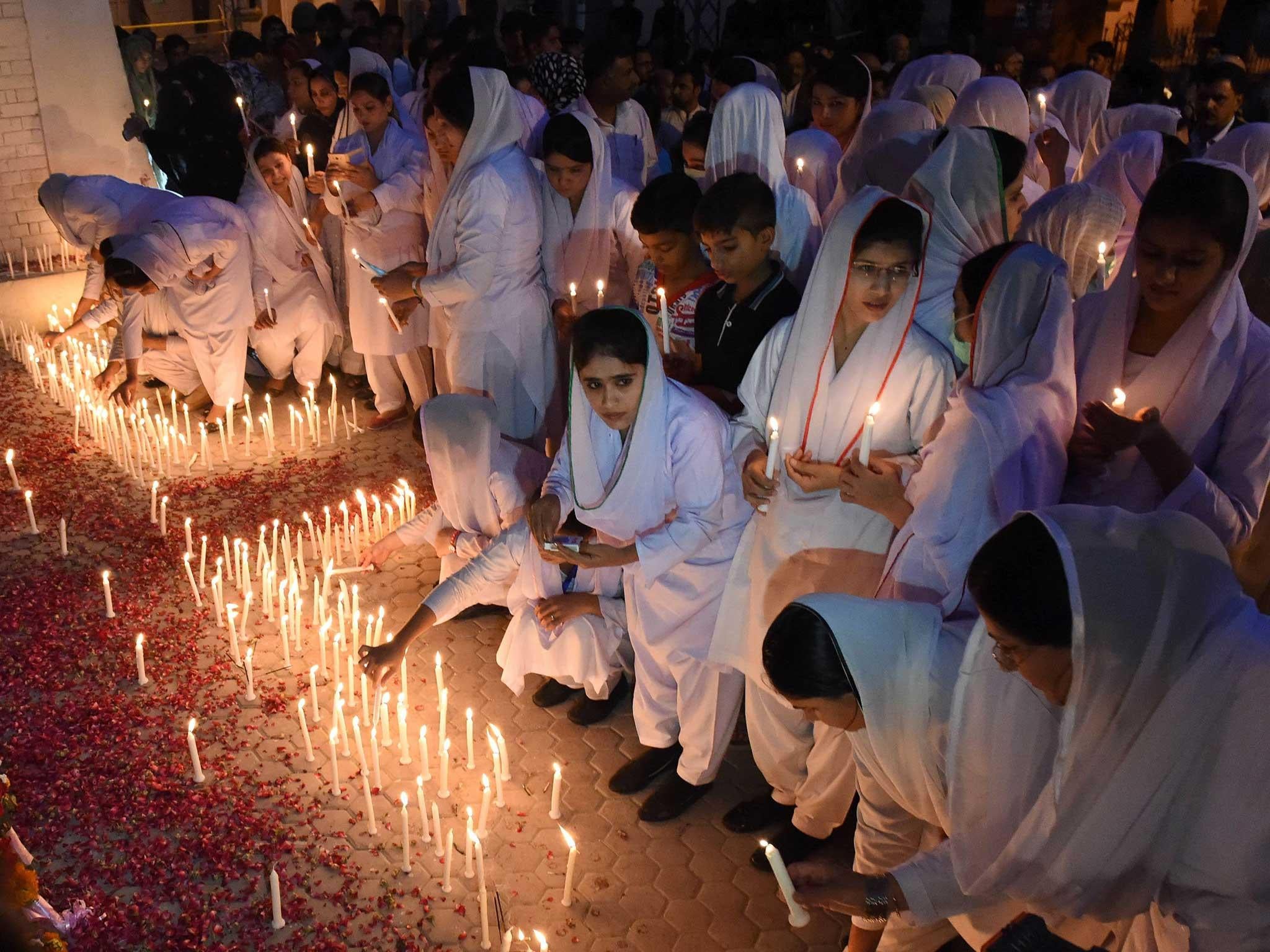I live in Pakistan and was astounded by the lack of a global reaction to the hospital bombing here this week
In the last couple of months alone, Isis has targeted Lebanon, Yemen, Jordon, Turkey, Bangladesh and Saudi Arabia in addition to the US, France and Germany. I expected the international community to stand with us


Your support helps us to tell the story
From reproductive rights to climate change to Big Tech, The Independent is on the ground when the story is developing. Whether it's investigating the financials of Elon Musk's pro-Trump PAC or producing our latest documentary, 'The A Word', which shines a light on the American women fighting for reproductive rights, we know how important it is to parse out the facts from the messaging.
At such a critical moment in US history, we need reporters on the ground. Your donation allows us to keep sending journalists to speak to both sides of the story.
The Independent is trusted by Americans across the entire political spectrum. And unlike many other quality news outlets, we choose not to lock Americans out of our reporting and analysis with paywalls. We believe quality journalism should be available to everyone, paid for by those who can afford it.
Your support makes all the difference.On Monday 70 people were killed in a suicide bombing at Civil Hospital in Quetta, the capital of Pakistan’s volatile Balochistan province.
The majority of those killed were lawyers who had come together at the hospital to protest against the targeted killing of the provincial bar association’s president, who had been murdered earlier on the same day.
Isis and the Pakistani Taliban faction Jamaat-ul-Ahrar (JA) claimed responsibility for the attack in separate messages.
While Isis and JA deliberately targeting a hospital should have been horrific enough, the fact that an entire generation of the city’s lawyers was eradicated would also be expected to send shockwaves around the world. But not only was there a lack of solidarity on social media across the western world, but, more crucially, global leaders criminally ignored the carnage in one of the most underreported conflict zones in the world.
While it might be difficult to empathise with victims that one might not be able to relate to, the involvement of Isis and the horrific images from Quetta should have sufficed in garnering more of a reaction. After all, in the last couple of months alone, Isis has targeted Lebanon, Yemen, Jordan, Turkey, Bangladesh and Saudi Arabia in addition to the US, France and Germany.
Those who had been oblivious to Isis being a global threat should have been woken up by this bloody summer.
Of course, Isis’ operational involvement in many of the attacks they claim is contentious. But the fact that individuals and jihadist factions are pledging allegiance to them highlights the menace and the lure of the Isis umbrella.
This in turn exposes the perils of the conspicuous lack of action in the West, which continues to strengthen the “us vs them” divide that all jihadist groups thrive on.
While the West’s reaction has been counterproductive, the response of the Pakistani leaders has been downright woeful. Both the civilian and military leadership persisted with the state’s decades-old policy of dehumanising the people of Balochistan by peddling the Quetta bombing as an attempt to sabotage the much touted China-Pakistan Economic Corridor and an ongoing military operation.
On the day when people were massacred in a terror attack on the provincial capital, Pakistan’s Army Chief Raheel Sharif was talking up the success of a counter-terror operation.
Whether it is the reduction of the province to a “hub of natural gas” or its billing as the gateway for China’s $46.2bn investment, the financial benefits of Balochistan’s “geostrategic value” have never been adequately shared with the Baloch people.
The fact that Isis and the Taliban persistently go after “soft targets” in the region underlines the jihadist groups’ pursuit of psychological warfare – and says a lot about the communities they choose to operate in. The gut-wrenching images that bloodied schools, parks or hospitals leave are supposed to instill a unique sense of fear.
What further aids the terror groups’ strategy is the divisiveness that is fuelled by people treating terrorist attacks differently depending on where they happen in the world. Not only does this help boost the jihadist propaganda of a “clash of civilisations” where Muslims and non-Muslims cannot live peacefully alongside one another, but it also eventually results in mass acceptance of terrorism.
The contrasting reaction to the Paris and Nice attacks – the two biggest acts of terror in modern France, eight months apart – shows how a nation can become, slowly but surely, inured to terrorism. Paris saw weeks of articles, months of political discussions and worldwide condemnation. These all happened, but on a much smaller scale, after Nice. The ability to make people accept terrorism as an inevitable part of their environment – and to make them act accordingly – is the biggest psychological tool that Isis has in its jihadist repertoire.
And so, while Pakistan has failed its lawyers’ fraternity and the people of its largest province by acting like a road network is the biggest victim, the West has let the Quetta victims down by treating the attack not as worthy of outrage.
When people in the West and the Muslim world start treating all terror attacks identically, regardless of the identities of the intended target or the location, we’ll be much more equipped to defeat Isis and jihadism as a whole.
Join our commenting forum
Join thought-provoking conversations, follow other Independent readers and see their replies
Comments